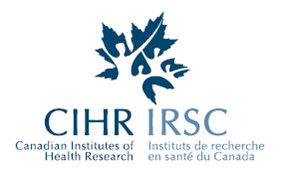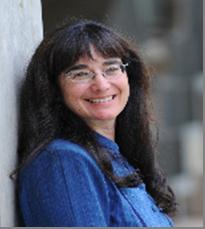The University of British Co lumbia has received $4 million in grants from the Canadian Institutes of Health Research. Dr. Jerry Spiegel received $1,900,637 for his project: Food systems and health equity in an era of globalization: Think, Eat and Grow Green Globally (TEG3). Dr. Annalee Yassi received $1,926, 236 for her project: Promoting Health Equity by Addressing the Needs of Health Workers: A Collaborative, International Research Program.
lumbia has received $4 million in grants from the Canadian Institutes of Health Research. Dr. Jerry Spiegel received $1,900,637 for his project: Food systems and health equity in an era of globalization: Think, Eat and Grow Green Globally (TEG3). Dr. Annalee Yassi received $1,926, 236 for her project: Promoting Health Equity by Addressing the Needs of Health Workers: A Collaborative, International Research Program.
UBC Media Release available here.
Dr. Spiegel’s Project:
 The TEG3 program of research addresses the health effects of the global food system through five interconnected projects in Ecuador and Canada. It ranges from the effects of pesticide exposure on banana workers in Ecuador and grape pickers in British Columbia’s Okanagan Valley, through healthy eating in schools in Vancouver and Quito, to changing livelihoods among indigenous communities in the Andes and in rural Canada. It is based on enabling people without a voice in how food is produced, marketed and consumed, in making decisions that will allow safer working conditions, healthier eating practices, and preservation of cultural practices based on environmental resources. By combining the results of existing knowledge on food systems and health with new knowledge generated in Ecuador and Canada, this program will move from knowledge to action using information and communication technologies like photography, teleconferencing and web-based meetings to connect the people who grow and eat food with each other, and with decision-makers in government and non-governmental organizations. Ultimately, this will result in policies and programs that will protect health in a coherent way that makes sense in both the North, and the South.
The TEG3 program of research addresses the health effects of the global food system through five interconnected projects in Ecuador and Canada. It ranges from the effects of pesticide exposure on banana workers in Ecuador and grape pickers in British Columbia’s Okanagan Valley, through healthy eating in schools in Vancouver and Quito, to changing livelihoods among indigenous communities in the Andes and in rural Canada. It is based on enabling people without a voice in how food is produced, marketed and consumed, in making decisions that will allow safer working conditions, healthier eating practices, and preservation of cultural practices based on environmental resources. By combining the results of existing knowledge on food systems and health with new knowledge generated in Ecuador and Canada, this program will move from knowledge to action using information and communication technologies like photography, teleconferencing and web-based meetings to connect the people who grow and eat food with each other, and with decision-makers in government and non-governmental organizations. Ultimately, this will result in policies and programs that will protect health in a coherent way that makes sense in both the North, and the South.
This interdisciplinary five-year research program, led by Jerry Spiegel (School of Population and Public Health [SPPH] and the Liu Institute for Global Issues) , includes UBC colleagues: Jennifer Black, Gwen Chapman and Alejandro Rojas from Land and Food Systems, and Ann Marie Nicol and Annalee Yassi from SPPH; as well as Gerardo Otero, Tim Takaro and Hannah Whitman from Simon Fraser University; Laurie Chan and Margot Parkes from UNBC, Deepthi Jayatilaka from Provincial Health Services Authority, Andrea Cortinois from University of Toronto, Sarah Carten from VCH, and colleagues in Ecuador: Jaime Breilh from the University of Andina Simon Bolivar (UASB), Wilma Freire from the University of San Franciso de Quito, and Ramiro Merino the Catholic University of Quito; and students from UBC,SFU, UNBC and UASB.
Dr. Yassi’s Project:
 The World Health Organization (WHO), International Labour Organization (ILO), and the Joint agency created by the UN to tackle AIDS (UNAIDS), have been increasingly concerned about the wellbeing of the health workforce globally, and specifically the need to improve the access of health workers to HIV and tuberculosis prevention, treatment, care and support themselves, so they are able to continue to provide prevention, treatment, care and support to the world’s population. This research program was designed to address research gaps identified in the recently endorsed WHO-ILO-UNAIDS guidelines to address this concern. With six interlinked studies, this program of research aims to: improve understanding of how the various global forces impact the health of health workers; implement and evaluate a complex multi-component health intervention (based on the WHO- ILO-UNAIDS Guidelines and using rigorous implementation science methodology; 3) ascertain the determinants of successful capacity-building; evaluate state-of-the-art information technology for knowledge transfer; and produce economic evaluation and budgeting tools that can be applied elsewhere.
The World Health Organization (WHO), International Labour Organization (ILO), and the Joint agency created by the UN to tackle AIDS (UNAIDS), have been increasingly concerned about the wellbeing of the health workforce globally, and specifically the need to improve the access of health workers to HIV and tuberculosis prevention, treatment, care and support themselves, so they are able to continue to provide prevention, treatment, care and support to the world’s population. This research program was designed to address research gaps identified in the recently endorsed WHO-ILO-UNAIDS guidelines to address this concern. With six interlinked studies, this program of research aims to: improve understanding of how the various global forces impact the health of health workers; implement and evaluate a complex multi-component health intervention (based on the WHO- ILO-UNAIDS Guidelines and using rigorous implementation science methodology; 3) ascertain the determinants of successful capacity-building; evaluate state-of-the-art information technology for knowledge transfer; and produce economic evaluation and budgeting tools that can be applied elsewhere.
This five-year research program, led by Annalee Yassi (School of Population and Public Health [SPPH]] will be conducted by an interdisciplinary team from UBC, including Elizabeth Bryce (Med Micro and VCH) Jane Buxton (SPPH and BCCDC), Mark FitzGerald (UBC and VGH Division of Respiratory Medicine), Carlo Marra (Pharmaceutical Sciences), David Moore- (SPPH and Centre of Excellence on HIV-AIDS), and Jerry Spiegel- (SPPH and Liu Institute for Global Issues) as well as partner organizations in South Africa, (notably the University of Free State, the National Institute of Occupational Health, the South Africa Department of Health and Department of Public Service Administration, and Free State Department of Health), as well as international agencies, (including the US Centres for Disease Control, and the World Health Organization). Numerous trainees are involved. While focusing on implementation of health interventions in South Africa, the research also links to the team’s work in Latin America and draws data worldwide to study the implementation of much-needed population health interventions in this area.